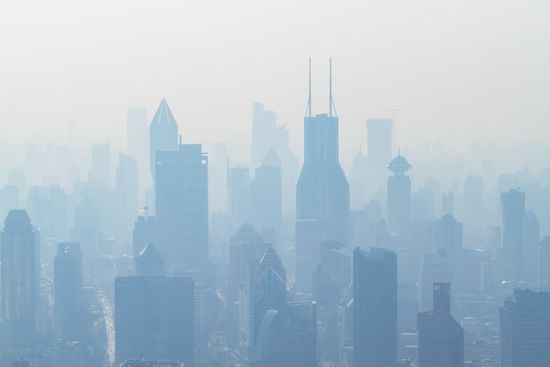“When you can’t breathe, nothing else matters,” the American Lung Association tells us.
We couldn’t agree more! Breathing in clean air is an essential part of caring for our bodies, which God has given us. Together with other health principles, it promotes optimum physical, mental, and spiritual health.
That’s why Seventh-day Adventists care about making sure that our environment—such as the air we breathe—is clean, fresh, and free from toxins.
We’ll learn more as we look at some scientific evidence.
Here’s a rundown of the questions we’re going to answer:
- What is meant by “fresh air”?
- What are the health benefits of fresh air?
- How much fresh air do we need?
- How can we get fresher air?
Before we can understand why fresh air is so essential for us, let’s define it.
What is meant by “fresh air”?
Fresh air is clean air, free from both indoor and outdoor pollution. It also contains negative ions, which energize the air—and us—by increasing the amount of oxygen we take in.

Photo by Gabor Kozmon on Unsplash
Researchers have looked at the benefits of a Japanese practice called “forest bathing”—spending time in forests. They wondered what makes the forest so beneficial.
To a great extent, it has to do with the air:1
- Oxygen released by the trees
- Negative ions
- Less air pollution
- Phytoncides (natural chemicals produced by the trees)
Let’s talk about those negative ions.
We’re so used to hearing the word “negative” and thinking “bad.” But here we’re talking about molecular polarity. Negative ions result when the air molecules “have gained or lost an electrical charge.” This usually happens when moving air, moving water, or sunlight breaks the molecules apart.2
Fresh air may have as much as ten times more negative ions than stale air!3
On the flip side, polluted air contains a lot of positive ions and very few negative ions. It also carries small particles, which can include harmful air pollutants.
Air pollution is often greater near large cities where there are a lot of vehicles or industrial plants.4 Just think of the smog clouds that surround big cities like Kampala, Uganda.
Indoor air quality is also worsened by cigarette smoke, paint, furniture, household chemicals, and more.
What are the health benefits of fresh air?
Fresh air gives our bodies the oxygen they need to stay physically healthy. It invigorates our minds. And in turn, the physical and mental benefits help us to be spiritually healthy and better connected to God.
On the other hand, when we’re breathing polluted or smoggy air, we’re putting ourselves at risk for headaches, tiredness, a sluggish mind, coughing, bronchitis, sinusitis, and even cancer.5

Photo by Photoholgic on Unsplash
That should be enough to make us want to breathe fresh air all the time! But the following benefits will motivate us, too.
Physical benefits
Oxygen is absolutely necessary for our bodies to make energy and keep us alive. Clean air is the best source of this oxygen, as well as many other benefits for physical health.
Deep breaths of fresh air increase the concentration of oxygen our lungs take in. It may be one of the reasons fresh air has been shown to improve body temperature, heart rate, and breathing efficiency.6
Earlier, we mentioned the practice of forest bathing. Here are some of its physical benefits:
- More energy7
- A stronger immune system8
- Lowered stress hormones9
- Better function of antioxidants (substances that help protect the cells from damage)10
- Less inflammatory markers related to coronary artery disease and chronic heart failure11
Mental benefits
Because of the connection between the mind and the body, the physical benefits of fresh air translate to mental health, too. Though the brain only makes up 2% of the body, it uses 20% of the body’s oxygen supply. Fresh air is vital for the brain.
Have you ever found yourself stuck in a rut when learning something or trying to solve a problem? In exasperation, you shut your laptop screen and went for a short walk. And when you returned, your mind felt clear and refreshed.
You were experiencing the mental health benefits of fresh air.
The increased oxygen and negative ions combine to help:
- Relax the mind12
- Improve focus and learning ability13
- Improve mood (by increasing levels of serotonin, the brain’s happiness hormone)14
- Decrease stress, anxiety, depression, and anger15
Spiritual benefits
Adventists believe that we are holistic beings whose physical, mental, and spiritual health are interconnected. Experiencing the benefits of fresh air means that we will have clear minds for connecting with God.
The Bible calls our bodies the temples of the Holy Spirit (1 Corinthians 3:16–17) because the body houses the mind, through which we can communicate with God. This means that what we choose to think about can have eternal consequences:
“For to set the mind on the flesh is death, but to set the mind on the Spirit is life and peace” (Romans 8:6, ESV).

Photo by Gift Habeshaw on Unsplash
And fresh air? When we experience its benefit on the mind, we also experience its spiritual benefits:
- We’re able to understand God’s Word better
- We have a clearer mind for prayer
- We can focus on God and His Spirit
- We make better decisions
How much fresh air do we need?
As you can guess, when it comes to fresh air, the more we can get, the better! Recent research suggests at least 30–40 minutes per day.
But unfortunately, most Americans spend over 90% of their time indoors, where fresh air tends to be lacking.
In 2019, researchers surveyed a group of people about the time they spent in nature and their resulting sense of health and wellbeing.
They found that those who spent between 200 and 300 minutes per week (30 and 40 minutes per day) outdoors had the greatest sense of health and wellbeing.16 Though there were other factors involved (such as spending time in green spaces), fresh air no doubt played a part.

Photo by Andre Furtado
The good news is that fresh air may continue to make a difference in your health even when you can’t be in it all the time! According to one study, the physical benefits of going on a forest bathing vacation lasted for at least seven days afterward.17
How can we get fresher air?
Follow these simple tips:
- Spend time outdoors in an environment full of negative ions
- Open your windows
- Get some house plants
- Use air purifiers and filters
Spend time outdoors
Indoor air can have up to 100 times more pollutants than outdoor air! Doesn’t that make you want to get some clean outdoor air?
Look for places out in nature where the concentration of negative ions is likely to be higher. Places such as waterfalls, creeks, rivers, forests, and the ocean.

Photo by Ioann-Mark Kuznietsov on Unsplash
Some ideas for spending time outdoors are:
- Going for a walk in the sunshine
- Exercising outside
- Working in your yard or garden
- Having a picnic at a park
- Reading a book outside
But there are ways to improve indoor air quality too.
Open your windows
Let some of that fresh outdoor air into your home! If the weather is warm and you don’t live in a polluted city, open those windows wide. For better ventilation and air circulation, run a fan and open the windows on opposite sides of your house to allow a crosswind.
On cold days, even cracking the window for a few minutes can help rejuvenate the indoor air.
Get some house plants
Plants take in carbon dioxide and release oxygen into the air, making them great for improving air quality. They also absorb toxic pollutants that come from carpets, furniture, cleaning products, and paint.18 In fact, one plant alone can remove up to 90% of pollutants in a room.19
Use air purifiers and filters
Air purifiers can help improve indoor air quality by removing unhealthful particles. Also, place air filters in your vents and keep them clean to ensure that the air circulating through your home is clean.
Breathe deep of fresh air and God’s Spirit
God cares about every aspect of our health—including the air we breathe. He designed fresh air to invigorate us physically, mentally, and spiritually. This is why Adventists are intentional about getting out in nature to enjoy the benefits of fresh air.
The Bible uses air as a metaphor for the Holy Spirit. Just like we need fresh air moment by moment, we need the Holy Spirit to help us navigate our daily lives.
So let’s make sure we’re getting deep breaths of both kinds of air—the fresh outdoor air and the air of God’s Spirit. They will refresh your mind, body, and spirit.
For more about how the Bible and health go hand in hand,
- Evans, Karin, “Why Forest Bathing Is Good for Your Health,” Greater Good, greatergood.berkeley.edu, August 20, 2018. [↵]
- Mann, Denise, “Negative Ions Create Positive Vibes,” WebMD.com, May 6, 2002. [↵]
- Nedley, Neil, Lost Art of Thinking (Nedley Publishing, Ardmore, OK, 2011), p. 250. [↵]
- “Air Pollution,” World Health Organization, who.int. [↵]
- Nedley, p. 252; “Indoor Air Quality,” OSHA.gov. [↵]
- English, Jim, “The Positive Health Benefits of Negative Ions,” Nutrition Review, nutritionreview.org, April 22, 2013. [↵]
- Ibid. [↵]
- Ibid. [↵]
- Li, Qing, “Effect of Forest Bathing Trips on Human Immune Function,” Environmental Health and Preventative Medicine, 15(1), 2010, pp. 9–17. [↵]
- Mao, et al., “The Salutary Influence of Forest Bathing on Elderly Patients with Chronic Heart Failure,” International Journal of Environmental Research and Public Health 14, 4: 368, 2017. [↵]
- Ibid. [↵]
- Nedley, p. 250. [↵]
- Ibid. [↵]
- Mann, Denise, “Negative Ions Create Positive Vibes.” [↵]
- Evans, Karin, “Why Forest Bathing Is Good for Your Health.” [↵]
- White, et al., “Spending At Least 120 Minutes a Week in Nature Is Associated with Good Health and Wellbeing,” Scientific Reports 9, 7730, 2019. [↵]
- Li, “Effect of Forest Bathing Trips on Human Immune Function.” [↵]
- “Using the Right Plants Can Reduce Indoor Pollution and Save Energy,” Science Daily, April 19, 2018. [↵]
- Nedley, p. 251. [↵]
More Answers
7 Reasons Why a Day of Rest is Important
We live in a fast-paced world. It seems as if success is measured in how much you can do in a short amount of time. (Extra points for the service or product that is available 24/7).
What the Bible says about Self-Control (and some practical tips)
Self-control is defined as the ability to control one’s thoughts, impulses, actions, and desires. And human nature being what it is, this can be a daily struggle.
Why Your Body Needs Rest for Optimal Health
Struggling to think straight? Wondering why you can’t remember that important tidbit you heard earlier today? Feeling like your emotions are about to explode?
The Seventh-day Adventist Diet: One of Our Key Longevity Secrets
Oats, avocados, lentils, tofu—probably not what you first think of in a standard American diet. But if you show up at the home of an Adventist, chances are you may be served one of these staples.
What Does the Bible Say About Grief and How Do We Overcome Grief?
The death of a beloved grandma. An unexpected fire that destroys your home. A relationship that dissolves.
what Do Adventists Say About Exercise?
Throughout their history, Seventh-day Adventists have upheld the importance of healthy living. This focus on whole-person wellness logically includes exercise, so many Adventists strive to be intentional about staying active.
Why Is Water So Important?
We all know that water is a substance we can’t live without. It quenches our thirst and keeps us hydrated on the inside. And it’s necessary for hygiene and cleansing on the outside too.
What You Should Know About the Adventist Health Studies
But what you may not know is that Adventists have been the subjects of long-term research into lifestyle and health. Since 1958, researchers from Loma Linda University School of Public Health have conducted five cohort studies. Collectively, these studies are known as the Adventist Health Studies.
Yes, There Are Health Benefits of Sunlight
The sun is something we see in the sky almost every day, and we don’t always give it much thought. Plus, we often have to be careful about prolonged sun or heat exposure so we don’t become dehydrated or overheated.
Trust in God: The Key to Health You May Be Missing
Who can we trust? The desire to trust is hardwired in us from our earliest years. Ideally, our parents will have built a foundation of trust through their care for us.
Why are many Adventists Vegetarian?
Many Seventh-day Adventists are vegetarians because they value personal health as one way to honor God through caring for their bodies (1 Corinthians 6:20; 10:31; Romans 12:1-2). Plus, God originally gave humans a plant-centered diet, according to Genesis 1:29, and today, more and more research is revealing the benefits of eating a diet low in animal products and high in foods like fruits, vegetables, grains, and nuts.
Didn’t find your answer? Ask us!
We understand your concern of having questions but not knowing who to ask—we’ve felt it ourselves. When you’re ready to learn more about Adventists, send us a question! We know a thing or two about Adventists.












